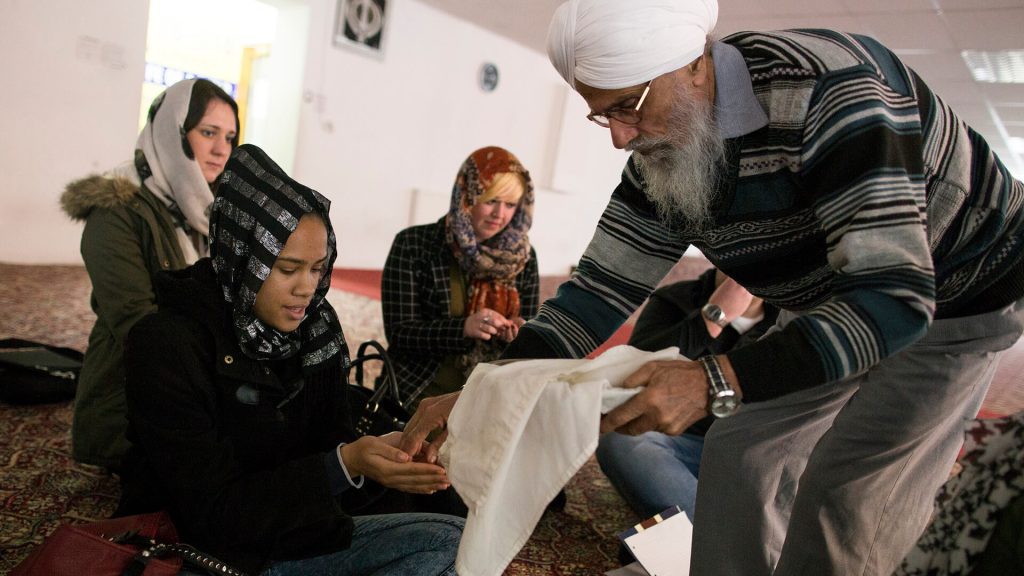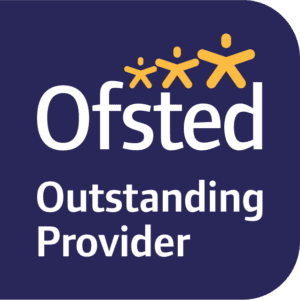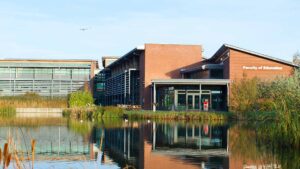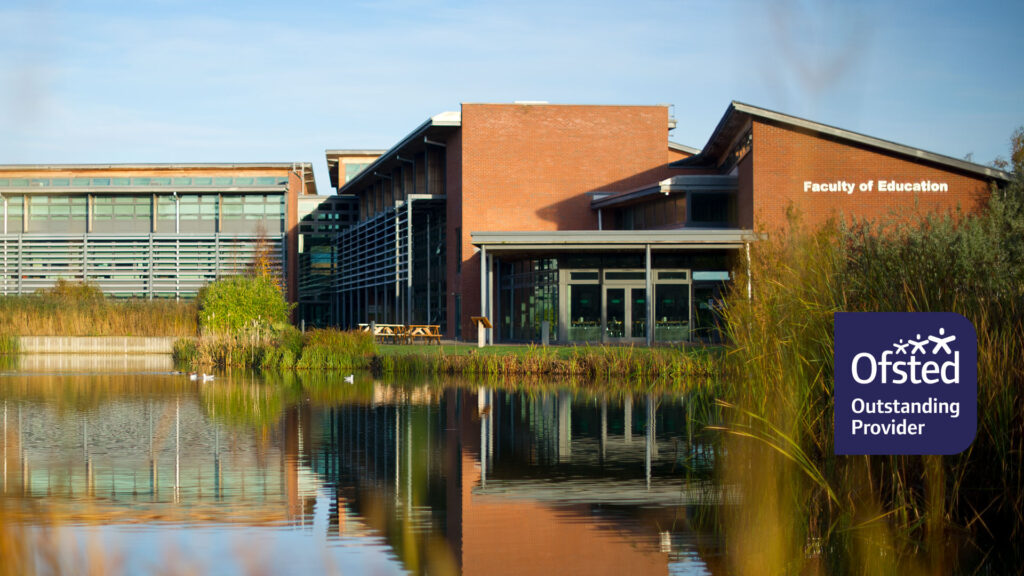Secondary Religious Education with QTS BA (Hons)
UCAS code: XV62
Explore everything from Eastern Dharma to The Bible in the Modern World as you learn to excel at teaching RE. Visit religious communities, experience life working in schools and gain recommendation for Qualified Teacher Status.
Overview
| Course length: | 3 years full-time |
|---|---|
| Start dates: | September 2024 September 2025 |
| Location: | Edge Hill University |
| Example offers: | BCC-BBC (A Level) or DMM (BTEC) View full entry criteria |
| Subject(s): | Education and TeachingReligion and Philosophy |
| Faculty: | Education |
| Department: | Secondary and Further Education |

What does it mean to be a great teacher? Study with us and we’ll think about the values that underpin the profession, develop your knowledge of the major world faiths, and learn the craft and pedagogy of teaching.
We’ll look at religion as a modern, living phenomenon. You’ll visit centres representing all six major world faiths and study their beliefs, practices, and texts. As you progress through the course, you’ll reflect on these in greater depth, gaining expert knowledge in the subject.
Our experienced tutors at Edge Hill, and the expert teachers in your practice placement schools, will support you to become an outstanding RE teacher. You’ll learn creative teaching techniques, and develop your own imaginative ways to communicate impartial and considered views on religion.
Successful completion of the programme leads to recommendation for Qualified Teacher Status (QTS).

Course features
-
Ofsted outstanding provider for Initial Teacher Education
-
International students can apply
-
Professional accreditation
-
Professional practice placements
What you'll study
We’ll start the course with introductions to the study of the main world religions, as well as modules where you’ll develop your professional and academic skills. You’ll start to understand the educational values for schools and learners and gain an understanding of contemporary education. In your first practice placement you’ll take part in lessons, taking on more responsibility as you progress through the year.
Year 2 is about building on the knowledge you’ve developed. You’ll start to think more critically, taking a deeper look into Judaism, as well as more specialist topics like the Bible and its influence – considering its presence in film, TV, music, and the media. Your second practice placement will involve planning your teaching and making sure students progress.
By Year 3, you’ll study religions including Islam and Buddhism in greater depth. In your final practice placement, you’ll spend more time in school and take on additional responsibility. You’ll deliver lessons and extracurricular activities, and take part in school events. You’ll also conduct your own research project, bringing together your knowledge to look at the possibilities for education.
How you'll study
Learning takes place in the University and in schools. Much of your time at university will be in a classroom setting where there is lots of group work and discussion to increase your knowledge and skills. You will be supported by your course tutors and undertake visits to places of worship and to schools which exemplify good teaching practice.
Guest speakers from the world of education and religion will feature in the course delivery and you will be required to study independently and read widely to support the lectures and seminars you attend.
You will spend a significant amount of time on placement in schools where you will put your training into practice. During this time you will assist in running classes, observing outstanding teachers and working alongside mentors and other colleagues to further your professional development.
You will also undertake Intensive Training and Practice (ITAP) as a specific and focused element of our teacher training curriculum. This is designed to consolidate your knowledge of effective teaching, and enable you to rehearse and obtain feedback from experts on your practice. Our ITAPs are designed to utilise the latest research and technology as well as draw on the outstanding mentors, tutors, and teacher expertise from across our partnership.
Over the course of your training, you will have the opportunity to participate in several days of Intensive Practice focusing on aspects of pivotal practice such as; behaviour management, scaffolding, professional behaviours and questioning.
During periods of ITAP, your timetable may differ and you may be required to attend campus and/or a placement on days outside of the usual pattern.
Your teaching timetable will increase as your training progresses and you become more confident in the classroom. You will work with pupils from various areas, backgrounds and abilities. This will provide experience in areas such as classroom management and the ability to teach individuals and groups at a range of levels.
How you'll be assessed
You will be assessed through a carefully sequenced curriculum which encompasses your subject knowledge, your pedagogical knowledge, and your classroom-based experience. Assessment methods will include written assignments and portfolios both during your time at university and when you are on your Professional Practice. Your professional development will be mapped against our carefully sequenced ITE curriculum so that, at the end of your training, you can be assessed against the Teachers’ Standards and be recommended for for the award of QTS*.
There are no formal written examinations as part of the current assessment methods on this programme.
Who will be teaching you
The Faculty of Education has been at the forefront of teacher education for 135 years and today enjoys the enviable position of being one of the country’s leading providers of education, training and research for the children’s workforce.
You will be taught by a range of highly qualified and experienced tutors who are committed to supporting you throughout the programme and providing you with the opportunities to succeed. Tutors are enthusiastic about their subjects and will model good practice. This will enable you to develop your own teaching skill and style.
The Edge Hill lead mentors and mentor leadership team play an important part in your teacher training as experts in their field. They have a deep knowledge of the trainee curriculum and support trainees and mentors to make progress providing guidance and support on aspects of the curriculum and assessment.
Entry criteria
Entry requirements
Typical offer 104-112 UCAS Tariff points. GCSE English Language or English Literature and Mathematics at Grade C or Grade 4 or above (or equivalent) will also be required.
Please note, for the purposes of initial teacher training, level 2 literacy and numeracy qualifications are not considered as equivalent to GCSE Grade C or Grade 4 in English Language or English Literature and Mathematics.
An interview forms part of the selection process.
If you accept a formal offer from Edge Hill University you will be required to meet the Department for Education’s standards for physical and mental fitness to teach and clearance to work with children. Further information, including a Declaration of Health questionnaire and details of how to apply for a Disclosure and Barring Service (DBS) Enhanced Disclosure will be sent to you after you have firmly accepted an offer.
You could apply for direct entry at Level 5 if you can evidence appropriate prior learning in accordance with Edge Hill University’s Academic Regulations.
Example offers
| Qualification | Requirement |
|---|---|
| A Level | BCC-BBC. |
| BTEC Extended Diploma (or combination of BTEC QCF qualifications) | Distinction, Merit, Merit (DMM). |
| T Level | Overall grade of Merit. |
| International Baccalaureate (IB) | We are happy to accept IB qualifications which achieve the required number of UCAS Tariff points. Subject-specific requirements at Higher Level (HL) Grade 5 may apply. |
| Access to Higher Education Diploma | 45 credits at Level 3, for example 9 credits at Distinction and 36 credits at Merit or 15 credits at Distinction and 30 credits at Merit. The required total can be attained from various credit combinations. |
Please note, the above examples may differ from actual offers made. A combination of A Level and BTEC awards may also be accepted.
If you have a minimum of two A Levels (or equivalent), there is no maximum number of qualifications that we will accept UCAS points from. This includes additional qualifications such as Extended Project Qualification (EPQ), AS Levels that haven't been continued to A Level, and General Studies AS or A Level awards.
English language requirements
International students require IELTS 6.0, with a score no lower than 5.5 in each individual component, or an equivalent English language qualification.
If your current level of English is half a band, one band, or one-and-a-half bands lower, either overall or in one or two elements, you may want to consider our Pre-Sessional English course.
How to apply
Apply full-time
Read our guide to applying through UCAS to find out more about the application process.
International
Please see our international student pages for further information about how to apply as a prospective international student.
Please note, this course is now closed to international applications for 2024 entry.
Should you accept an offer of a place to study with us and formally enrol as a student, you will be subject to the provisions of the regulations, rules, codes, conditions and policies which apply to our students. These are available at www.edgehill.ac.uk/studentterms.
Call our Clearing helpline on 0800 028 6677, Monday to Friday from 9am - 5pm or complete our Clearing Application Form and get the guidance you need. Want to know more about Clearing? view our Complete Guide to Clearing 2024.
Apply through Clearing
Facilities
 Housed in a state-of-the-art £9million building, the Faculty of Education enjoys a stunning setting from both its lakeside and piazza buildings.
Housed in a state-of-the-art £9million building, the Faculty of Education enjoys a stunning setting from both its lakeside and piazza buildings.
Facilities in the lakeside building include a 300-seat lecture theatre, five well-equipped ICT suites, and 18 teaching rooms complete with the latest technology. The lakeside building is also home to a popular vegan and vegetarian cafe where students can meet to socialise and discuss their studies.
The nearby piazza building offers modern facilities including a lecture theatre and a number of seminar rooms.
Where you'll study
Faculty of Education
Finance
Tuition fees
UK Full-Time
£9,250
a year
International
£16,500
a year
EU/EEA and Swiss students who have settled or pre-settled status under the EU Settlement Scheme, as well as Irish nationals, may be eligible for the UK tuition fee rate.
Financial support
Subject to eligibility, UK students joining this course can apply for a Tuition Fee Loan from the Government to cover the full cost of tuition fees. UK students enrolling on the course may also be eligible to apply for additional funding to help with living costs.
Scholarships
We offer a range of scholarships, which celebrate the determination, commitment and achievement of our students. Many of our scholarships are awarded automatically. There are some however, where you will need to be involved in an application or nomination process. To find out more about our scholarships and check your eligibility, please visit our dedicated scholarships pages.
Money Matters
Please view the relevant Money Matters guide for comprehensive information about the financial support available to eligible UK students.
EU/EEA and Swiss students who have settled or pre-settled status under the EU Settlement Scheme may be eligible to apply for financial support. Irish nationals can ordinarily apply to Student Universal Support Ireland (SUSI). If you are an EU student who does not have settled or pre-settled status, or are an international student from a non-EU country, please see our international student finance pages.
Your future career
As there’s a national shortage of religious education teachers you’ll find lots of job opportunities across the UK. Our students have found there to be international opportunities too.
With your confidence, skills, and practical experience from working in schools and other settings, you’ll be able to excel as a teacher and bring excellent subject knowledge to your first teaching position.
We’ll help you gain your first teaching post. And we offer further study options if you want to gain more qualifications later in your career.
This degree is accredited by the Department for Education. Successful completion of the course will enable you to gain recommendation for Qualified Teacher Status (QTS).
Course changes
Every effort has been made to ensure the accuracy of this information, however our courses are subject to ongoing review and development. Changing circumstances may necessitate alteration to, or the cancellation of, courses.
Changes may be necessary to comply with the requirements of professional bodies, revisions to subject benchmarks statements, to keep courses updated and contemporary, or as a result of student feedback. We reserve the right to make variations if we consider such action to be necessary or in the best interests of students.












